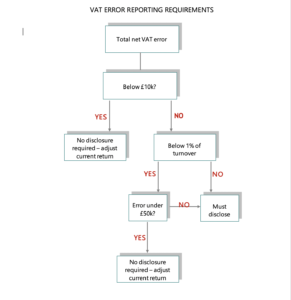What is a taxable supply and who is a taxable person?
A VAT Back To Basics
Taxable supply
It is sometimes useful when considering a transaction to “go back to basics” for VAT purposes. There are certain tests to determine whether a supply is taxable, and these are set out below. Broadly, the tests establish whether UK VAT is payable on a sale and they determine whether an entity is “in business”, that is; carrying on an economic activity.
A transaction is within the scope of UK VAT if all four of the following conditions are satisfied:
- It is a supply of goods or services.
There is a distinction between the two types of supply as different VAT treatments may apply. Generally, everything that is not tangible goods is services. However, if no goods or services are actually provided, there is no supply. Indeed, if there is no consideration for a supply, in most cases it is not a taxable supply.
- It takes place in the UK.
There are quite complex tests to consider when analysing the “place of supply”, especially where services are concerned. If the place of supply is outside the UK then usually no UK VAT is due, however, the supply may be subject to VAT in another country.
- It is made by a taxable person.
A taxable person is any legal entity which is, or should be, registered for VAT in the UK.
- It is made in the course or furtherance of any business carried on by that person
Business
The term “business” is only used in UK legislation, The Principal VAT Directive refers to “economic activity” rather than “business” and since UK domestic legislation must conform to the Directive both terms must be seen as having the same meaning. Since the very first days of VAT there have been disagreements over what constitutes a “business”. I have only recently ended a dispute over this definition for a (as it turns out) very happy client. The tests were set out as long ago as 1981 and may be summarised as follows:
- Is the activity a serious undertaking earnestly pursued?
- Is the activity an occupation or function, which is actively pursued with reasonable or recognisable continuity?
- Does the activity have a certain measure of substance in terms of the quarterly or annual value of taxable supplies made (bearing in mind that exempt supplies can also be business)?
- Is the activity conducted in a regular manner and on sound and recognised business principles?
- Is the activity predominantly concerned with the making of taxable supplies for a consideration?
- Are the taxable supplies that are being made of a kind which, subject to differences of detail, are commonly made by those who seek to profit from them?
So, if these tests are passed a taxable supply exists. The next step is to establish which VAT rate applies. In an often quoted comment from the judge in the Morrison’s Academy Boarding Houses Association 1978 STC1 Court Of Session case “…In my opinion it will never be possible or desirable to define exhaustively ‘business’ ”. Which what it lacks in helpfulness, makes up for in candour.
There was something of a deviation from the Lord Fisher tests in the Longbridge Court of Appeal case, however, that appears to be a blip and HMRC seem to have reverted to Lord Fisher in subsequent hearings on the same topic. A bit of a: watch this space area of VAT.
Recent cases on business
Recent case law on this issue here and here and HMRC Internal guidance on the Lord Fisher tests here
Commentary
Tip: It is often easier to consider what isn’t a taxable supply to establish the correct VAT treatment. Specific examples of situations which are not taxable supplies are; donations, certain free supplies of services, certain grants or funding, some compensation and some transactions which are specifically excluded from the tax by legislation, eg; transfers of going concerns (TOGC).
I think that it is often the case that the basic building blocks of the tax are overlooked, especially in complex situations and I find it helps to “go back to the first page” sometimes.

